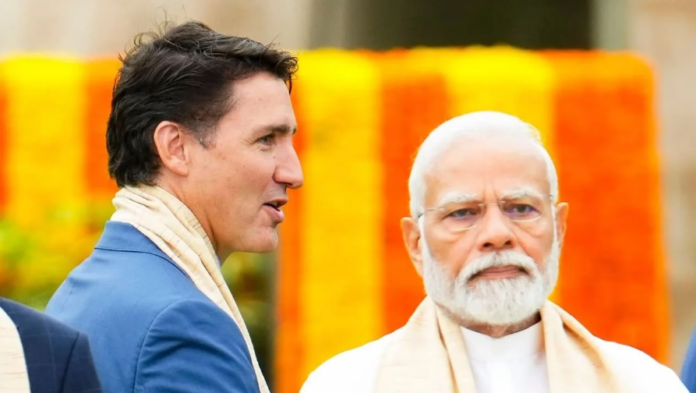The Canadian government has clarified its stance regarding a recent controversial media report that sought to connect Indian Prime Minister Narendra Modi and other senior Indian officials to the killing of Khalistani terrorist Hardeep Singh Nijjar. The government termed the report “speculative and inaccurate.”
In a statement issued on October 14, Canadian authorities acknowledged the seriousness of the Nijjar killing but denied any direct accusations against PM Modi or senior officials such as External Affairs Minister S. Jaishankar and National Security Adviser Ajit Doval.
“The Government of Canada has not stated, nor is it aware of evidence, linking Prime Minister Modi, Minister Jaishankar, or NSA Doval to the serious criminal activity within Canada. Any suggestion to the contrary is both speculative and inaccurate,” the statement read.
The clarification came in response to a report by The Globe and Mail, which cited an unnamed Canadian security official claiming that Canadian agencies believed PM Modi “knew about Nijjar’s killing.” The report has intensified tensions between India and Canada, already strained after Canadian Prime Minister Justin Trudeau alleged Indian involvement in the incident.
India has vehemently denied the claims, labeling The Globe and Mail report as part of a smear campaign. Ministry of External Affairs (MEA) spokesperson Randhir Jaiswal stated, “Such ludicrous statements made to a newspaper purportedly by a Canadian government source should be dismissed with the contempt they deserve. Smear campaigns like this only further damage our already strained ties.”
Hardeep Singh Nijjar, a designated terrorist in India and an advocate of Khalistani separatism, was shot dead outside a gurdwara in British Columbia in June 2024. His killing has become a flashpoint in India-Canada relations, with both nations engaging in a diplomatic tit-for-tat, including the expulsion of diplomats.
Reports from The Washington Post added another layer to the controversy. It alleged that Indian diplomats in Canada had collected intelligence on Sikh separatists and used this information to coordinate operations with the Lawrence Bishnoi gang, a notorious criminal syndicate. During a purported “secret meeting” in Singapore, Canadian officials reportedly presented evidence suggesting India’s involvement in Nijjar’s killing.
Indian NSA Ajit Doval was reportedly cited in the meeting as claiming that Bishnoi could orchestrate violence from within prison, where he continues to operate despite incarceration.
The Nijjar case has deepened the rift between India and Canada, with both nations maintaining firm stances. While Canada has expressed concerns over public safety threats, India continues to refute all allegations, urging Ottawa to take decisive action against anti-India elements operating from Canadian soil.
The controversy underscores the complexities in bilateral relations, with both countries navigating sensitive political and security challenges amidst growing international scrutiny.



